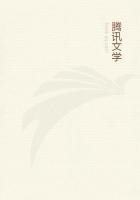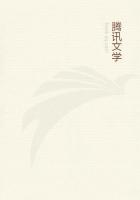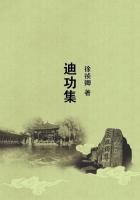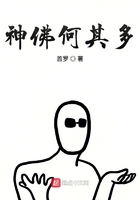14. Method followed in this explication of faculties. These, Ithink, are the first faculties and operations of the mind, which it makes use of in understanding; and though they are exercised about all its ideas in general, yet the instances I have hitherto given have been chiefly in ****** ideas. And I have subjoined the explication of these faculties of the mind to that of ****** ideas, before Icome to what I have to say concerning complex ones, for these following reasons:-First, Because several of these faculties being exercised at first principally about ****** ideas, we might, by following nature in its ordinary method, trace and discover them, in their rise, progress, and gradual improvements.
Secondly, Because observing the faculties of the mind, how they operate about ****** ideas,- which are usually, in most men's minds, much more clear, precise, and distinct than complex ones,- we may the better examine and learn how the mind extracts, denominates, compares, and exercises, in its other operations about those which are complex, wherein we are much more liable to mistake.
Thirdly, Because these very operations of the mind about ideas received from sensations, are themselves, when reflected on, another set of ideas, derived from that other source of our knowledge, which Icall reflection; and therefore fit to be considered in this place after the ****** ideas of sensation. Of compounding, comparing, abstracting, &c., I have but just spoken, having occasion to treat of them more at large in other places.
15. The true beginning of human knowledge. And thus I have given a short, and, I think, true history of the first beginnings of human knowledge;- whence the mind has its first objects; and by what steps it makes its progress to the laying in and storing up those ideas, out of which is to be framed all the knowledge it is capable of: wherein Imust appeal to experience and observation whether I am in the right:
the best way to come to truth being to examine things as really they are, and not to conclude they are, as we fancy of ourselves, or have been taught by others to imagine.
16. Appeal to experience. To deal truly, this is the only way that Ican discover, whereby the ideas of things are brought into the understanding. If other men have either innate ideas or infused principles, they have reason to enjoy them; and if they are sure of it, it is impossible for others to deny them the privilege that they have above their neighbours. I can speak but of what I find in myself, and is agreeable to those notions, which, if we will examine the whole course of men in their several ages, countries, and educations, seem to depend on those foundations which I have laid, and to correspond with this method in all the parts and degrees thereof.
17. Dark room. I pretend not to teach, but to inquire; and therefore cannot but confess here again,- that external and internal sensation are the only passages I can find of knowledge to the understanding.
These alone, as far as I can discover, are the windows by which light is let into this dark room. For, methinks, the understanding is not much unlike a closet wholly shut from light, with only some little openings left, to let in external visible resemblances, or ideas of things without: would the pictures coming into such a dark room but stay there, and lie so orderly as to be found upon occasion, it would very much resemble the understanding of a man, in reference to all objects of sight, and the ideas of them.
These are my guesses concerning the means whereby the understanding comes to have and retain ****** ideas, and the modes of them, with some other operations about them.
I proceed now to examine some of these ****** ideas and their modes a little more particularly.
Chapter XII
Of Complex Ideas 1. Made by the mind out of ****** ones. We have hitherto considered those ideas, in the reception whereof the mind is only passive, which are those ****** ones received from sensation and reflection before mentioned, whereof the mind cannot make one to itself, nor have any idea which does not wholly consist of them. But as the mind is wholly passive in the reception of all its ****** ideas, so it exerts several acts of its own, whereby out of its ****** ideas, as the materials and foundations of the rest, the others are framed. The acts of the mind, wherein it exerts its power over its ****** ideas, are chiefly these three: (1) Combining several ****** ideas into one compound one; and thus all complex ideas are made.
(2) The second is bringing two ideas, whether ****** or complex, together, and setting them by one another, so as to take a view of them at once, without uniting them into one; by which way it gets all its ideas of relations. (3) The third is separating them from all other ideas that accompany them in their real existence: this is called abstraction: and thus all its general ideas are made. This shows man's power, and its ways of operation, to be much the same in the material and intellectual world. For the materials in both being such as he has no power over, either to make or destroy, all that man can do is either to unite them together, or to set them by one another, or wholly separate them. I shall here begin with the first of these in the consideration of complex ideas, and come to the other two in their due places. As ****** ideas are observed to exist in several combinations united together, so the mind has a power to consider several of them united together as one idea; and that not only as they are united in external objects, but as itself has joined them together. Ideas thus made up of several ****** ones put together, I call complex;- such as are beauty, gratitude, a man, an army, the universe; which, though complicated of various ****** ideas, or complex ideas made up of ****** ones, yet are, when the mind pleases, considered each by itself, as one entire thing, and signified by one name.

